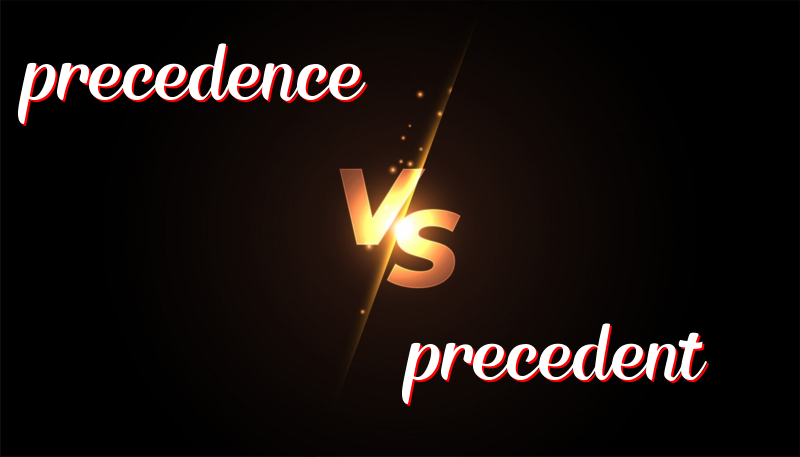英語單詞Precedence 與 Precedent的區別
Precedence vs. Precedent 的差異
在學習英語的過程中,了解詞彙的微妙差異是非常重要的。今天我們來討論兩個經常讓人混淆的詞彙:precedence 和 precedent。
詞源歷史
Precedence 和 precedent 都來自拉丁語 “praecedere”,意思是 “走在前面”。然而,這兩個詞在現代英語中有不同的用法和意義。
Precedence 的使用
Precedence 是一個名詞,意為「優先」或「地位的優先」。它特別用來描述某事或某人因為地位、重要性或時間順序而具有的優先權。
例句:
1. In emergency situations, the well-being of the patients takes precedence over administrative tasks.
在緊急情況下,病人的福祉優先於行政任務。
2. Safety takes precedence over speed in transportation planning.
在交通規劃中,安全優先於速度。
3. The judge emphasized that the rule of law must take precedence over personal opinions.
法官強調法律規則必須優先於個人意見。
4. During the meeting, it was clear that the budget discussions took precedence over other topics.
在會議中,明顯看出預算討論優先於其他議題。
5. In the company, senior employees have precedence in choosing vacation days.
在公司內,資深員工在選擇假日上有優先權。
Precedent 的使用
Precedent 也是一個名詞,意為「先例」或「範例」,特別用來指過去的事件或行為作為將來決策或行動的指南,尤其在法律和司法領域中。
例句:
1. The court’s decision set a significant precedent for future cases.
法院的決定為未來的案件設立了重要的先例。
2. Lawyers often cite previous precedents to support their arguments.
律師常常引用過去的先例來支持他們的論點。
3. This policy change establishes a new precedent within the organization.
這項政策變更在組織內建立了一個新先例。
4. The company’s decision to offer work-from-home options was based on an earlier precedent set by another firm.
公司決定提供居家辦公選項是基於另一家公司先前的先例。
5. It’s rare to find a legal case without any precedents to rely on.
很少有法律案件找不到任何可依據的先例。
記憶小技巧
要記住這兩個詞的差異,可以使用以下小技巧:
- Precedence 中的 “d” 代表 “dominance”(優勢),因為它與優先權和地位有關。
- Precedent 中的 “t” 代表 “template”(範本),因為它與先例和範例有關。
總結
簡而言之,precedence 描述的是優先權和重要性,通常與地位或順序有關;而 precedent 則是指範例或先例,尤其在法律和決策中用來作為參考。
希望這篇文章能幫助你更清楚地理解 precedence 和 precedent 的用法與差異。

Leave a Reply
You must be logged in to post a comment.